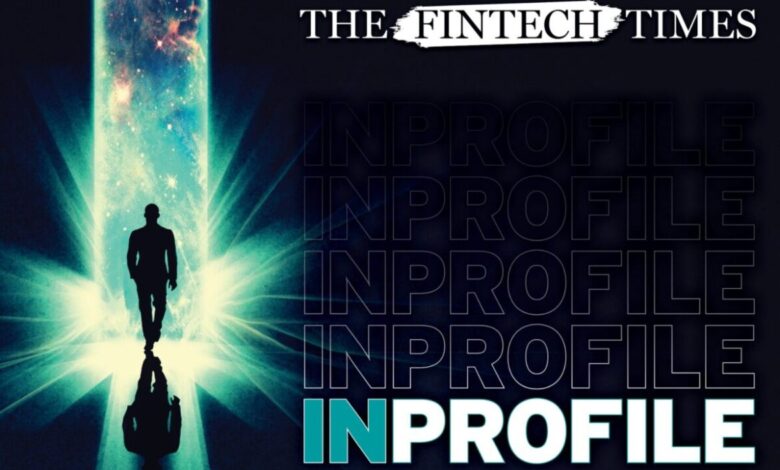In Profile: Robert Hudson at FIS

For the past nine years, FIS – a global provider of financial services technology solutions for financial institutions, businesses and developers – has supported fintech innovation and growth through its accelerator programme.
Since its inception, its accelerator alumni have collectively raised over $1.5billion in capital since completing the programme and is currently looking for 10 promising fintech startups to participate in its two-week incubation and 12-week intensive programme.
To learn more about FIS and the people behind the company, we chatted to Robert Hudson, who serves as the senior vice president, group executive and head of international banking and payments for FIS. His responsibilities include holding the P&L for the entirety of FIS’ banking and payments lines of business internationally.
With more than 30 years of experience in the global payments and fintech services sector, Hudson’s background includes senior roles at HSBC, General Electric, PricewaterhouseCoopers, TSYS (now Global Payments), and Nets A/S (now Nexi Group).
Tell us more about your company and its purpose

FIS is a leading provider of technology solutions for financial institutions and businesses of all sizes and across any industry globally. We work with 95 per cent of the world’s leading banks and over a million global businesses to help them move money and innovate for their customers.
We’re dedicated to advancing the way the world pays, banks and invests through trusted innovation, system performance, and flexible architecture.
For over 50 years, FIS has continued to drive growth for clients around the world by creating tomorrow’s technology, solutions, and services. We help clients use technology in innovative ways to solve business-critical challenges and deliver superior customer experiences.
What are some of your recent achievements you’d like to highlight?
The fintech industry is ever evolving and at FIS, we strive to be at the forefront of innovation. I’ve been fortunate to lead a number of projects to transform our product assets and ensure that we are continuing to stay ahead as industry trends and customer demands shift.
Some examples include deploying products on the cloud, delivering an elastic authorisation switch, and replacing legacy platforms with pioneering new alternatives. This has allowed us to ensure our product portfolio future proofs client requirements, helping them to address both existing and new business challenges as they arise.
How did you get into the fintech industry?
When banks were starting to build out their issuer and acquirer businesses a number of decades ago, I helped a traditionally US based fintech build out their global presence, which gave me my first taste of fintech. I quickly became interested in helping fintech businesses, particularly local payments champions, grow into companies that could win and compete across the globe through reorganising their commercial strategy, structure, processes, and culture.
I’ve now been in the industry for more than 30 years, having held senior roles at the likes of HSBC, PricewaterhouseCoopers, TSYS (now Global Payments) and Net A/S (Nexi Group) before joining FIS to continue nurturing my passion in global payments and financial services.
What’s the best thing about working in the fintech industry?
Fintech is an industry that rarely stands still. Whether it’s regulation, end customer needs, or client development, things are constantly changing – and that’s incredibly exciting!
Fintech can be very fast-paced but it does offer a career of lifelong learning and the exhilarating opportunity to develop transformative solutions that disrupt traditional finance systems. When I look back at the last 10-20 years of my career, today’s fintech industry is almost unrecognisable. For example, when it comes to payments, we often forget that Google Wallet and Apple Pay are relatively new in the grand scheme of things.
The industry is moving rapidly. There’s also been much change in regards to consolidation, investment, and innovation. It’s really rewarding both personally and professionally as I’m constantly learning and adapting to understand the emerging challenges and opportunities of today’s marketplace.
What frustrates you most about the fintech industry?
The fintech industry is usually one of the first to be hit with global economic challenges, especially because it’s right at the forefront of the financial ecosystem. Some research FIS conducted recently found that 78 per cent of financial services company executives in the UK say high interest rates, in particular, are impacting their ability to innovate and invest.
Despite the economic outlook, the global fintech industry has demonstrated its strength and resilience. With customers expressing concern about the state of the economy, the industry is continuing to explore how future-looking technology can build trust and help ensure clients have the adequate solutions to weather these storms.
How have your previous roles influenced your career?
Throughout my career, I’ve learnt that sometimes taking a risk is needed, especially when it comes to career moves. I’m a big believer in lateral career moves which allow you to take a job on the same level as your previous one but in a different department or company, and I would encourage those in fintech looking to progress to consider making such a move.
Making career moves laterally has allowed me to gain experiences of individual industry segments and disciplines. This has provided me with the attributes needed to make decisions with a view of how it impacts different parts of the industry. For example, gaining insight into the end-user, sell-side, buy-side segments in banks, consumer facing organisations as well as third parties. By doing this, you can gain awareness of industry components and the disciplines within them – whether it’s commercial, technical, financial, or operational.
While it can be daunting to make these moves and explore new aspects of fintech, I’ve learnt that perseverance and constantly challenging yourself to expand your knowledge and skills are crucial to building a fruitful career.
What’s the best mistake you’ve ever made?
Learning from failure is often the key to success and making mistakes can be seen as a positive learning opportunity. By getting things wrong, we’re able to improve our skills and grow in various ways.
One of the key lessons I’ve learnt is to not rush important decisions. Confidence is a great trait to have in the industry but we must be careful not to be too hubristic. When I was younger, I was incredibly eager and rushed into a deal without fact checking and validating certain details.
Fortunately, I had a boss that also viewed mistakes as a positive opportunity to grow and reminded me of the importance of preparation, validation and double checking to look at the small print. It’s very easy to explain to someone that you should do all those things before making a deal but until you’ve made a mistake, it’s difficult to get the strength of that message across and realise how important it is.
What has the future got in store for your company?
At FIS, we are looking at our current portfolio and seeing where we can invest and make informed, educated product decisions in alignment with our clients’ needs. A big focus for us is ensuring that we’re positioning ourselves for the future as we want to expand in a way that reflects the industry.
While moving away from legacy technologies and solutions can be difficult, we are examining the bigger picture when it comes to innovation and making those crucial business decisions now to facilitate additional functionality. This means that we can focus on a smaller set of strategic, high-quality, and future-rich products covering all parts of the value chain that we can grow and develop.
FIS is a big company, but we are also very focused on being creative. We have built solid foundations when it comes to security and scalability which have been essential in creating the capacity to deal with volume growth and explore areas of future investment and innovation. By establishing those foundations, our clients can be confident that they will be looked after now and in the long term and that we’ll continue to provide pioneering solutions that meet their needs, which is what sets us apart from others.
What are the next key talking points or challenges for your industry as a whole
The banking and payments sector is facing a huge amount of competitive pressure. Decades ago, banks were seen as the ultimate safe and secure go-to institution as they comply with regulation. However, we’re seeing growth in neobanks, such as Revolut and Monzo, that can design and build from scratch in order to meet shifting consumer demands. When you’re well established like the big banks, it can be harder to innovate at pace and keep up with digital transformation.
Regulation and compliance continue to be big themes for C-suite professionals in financial services, but there are conversations around scalability, meeting consumers’ future needs, and how to ensure established institutions and fintechs are fit for purpose for the long term. As a result, many leaders are exploring IT, cloud, and product development in order to achieve this.
We’re also seeing the coming together of global markets. Industry players are now examining the different levels of innovation in various markets and are beginning to understand that we can share these differences to further drive innovation across the global fintech industry.



